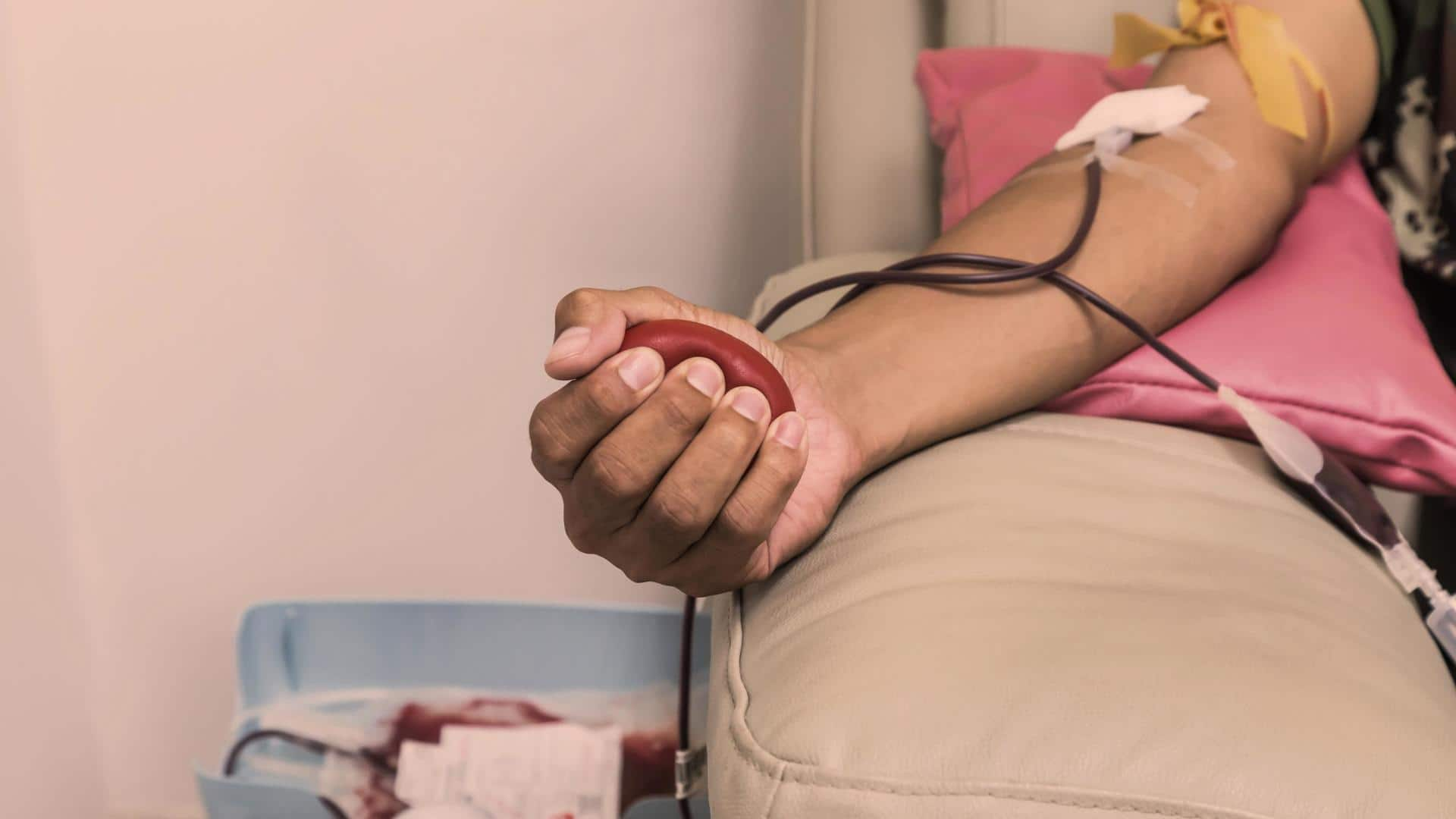
These blood donation myths are absolutely baseless
What's the story
When you donate your blood, you make a life-saving difference in this world. However, not many people believe in doing so. Not that they are unkind but several misconceptions about blood donation that have been around for quite some time easily influence one's decision. Let not these five myths about blood donation hinder your way toward saving a life. Check them out!
Myth 1
Myth 1: Donating blood can make you fall sick
No, your health isn't in jeopardy when you donate blood. Although doctors advise donors to rest for a day and sip on fluids, it doesn't make the latter any less healthy than they were before. Scientifically, the blood levels in the body return to a normal volume within 48 hours of donation and it takes four-eight weeks to replace the lost red blood cells.
Myth 2
Myth 2: People taking medication cannot donate blood
This misconception about blood donation is partially false. While it is true that people taking antiplatelet, anticoagulants, and treatments for skin should not donate blood, the potential donor can check with their health professional if their current medications allow them to do so. If you are eligible, do not miss out on your prescribed medication to donate blood.
Myth 3
Myth 3: Blood donation is a painful process
Here's another half-baked information about blood donation. The pain in this process is only of the needle entering your body, which is not extreme but very mild, like a vaccine. Also, it is a short-lived sensation that vanishes in a few seconds. After donating, you may feel a slight pain or bruise at the spot where the needle was inserted, but it is harmless.
Myth 4
Myth 4: People who have tattoos or piercings cannot donate
One of the most common myths is that people who have tattoos and piercings can't donate blood, which is true but only for six months. World Health Organization (WHO) says if you have recently gotten a tattoo or body piercing done, you can't donate for six months from the date of the procedure. This is done to prevent the transfer of any potential infection.
Myth 5
Myth 5: People can only donate blood once a year
It is safe to donate blood more than once a year. As aforementioned, our body takes four-eight weeks to replace the red blood cells that get lost during the blood transfer, a donor can schedule his next donation post that. "Whole blood donors can donate up to six times a year. Platelet apheresis donors may give 24 times per year," says American Red Cross.